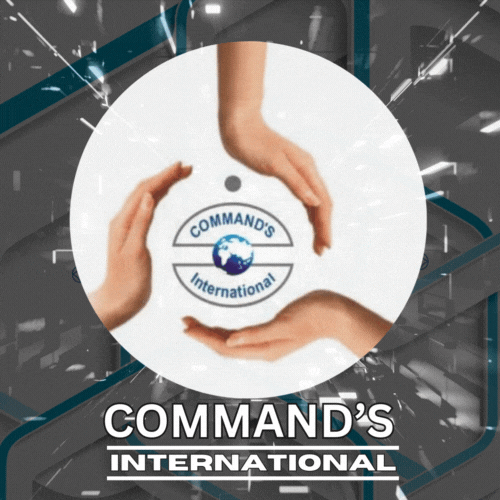Supply Chain Management refers to the coordination and management of all activities involved in sourcing, production, and delivery of goods and services. It includes planning, procurement, manufacturing, logistics, and customer service, ensuring that products reach end-users efficiently and cost-effectively.
Key Components of SCM
- Planning: Determining demand, creating production schedules, and forecasting inventory needs.
- Sourcing: Selecting suppliers and negotiating contracts for raw materials or products.
- Production: Transforming raw materials into finished goods.
- Logistics: Managing transportation, warehousing, and delivery of goods.
- Returns Management: Handling defective or returned products and recycling.
Importance of Supply Chain Management
- Cost Efficiency: Optimizes resources, reduces waste, and minimizes costs.
- Customer Satisfaction: Ensures timely delivery and high-quality products.
- Risk Management: Anticipates and mitigates disruptions in the supply chain.
- Improved Cash Flow: Maintains the right inventory levels, reducing holding costs.
SCM Processes
Supply Chain Planning:
- Forecasting demand using historical data and market trends.
- Example: A smartphone manufacturer predicts higher demand during festive seasons and plans production accordingly.
Procurement:
- Identifying and sourcing raw materials or components.
- Example: An automobile company procures steel, tires, and batteries from multiple suppliers.
Manufacturing:
- Producing finished goods from raw materials.
- Example: A bakery transforms flour, sugar, and butter into cakes and pastries.
Inventory Management:
- Ensuring optimal stock levels to meet demand without overstocking.
- Example: A retailer maintains adequate stock of winter wear during December and January.
Transportation and Logistics:
- Shipping goods from warehouses to customers efficiently.
- Example: An e-commerce company partners with delivery services for last-mile delivery.
Returns and Reverse Logistics:
- Handling returned products or recycling materials.
- Example: An electronics company offers exchange programs for old devices.
Types of Supply Chains
Product-Based Supply Chain: Focuses on manufacturing and delivering tangible goods.
- Example: A furniture company producing and delivering dining tables.
Service-Based Supply Chain: Focuses on delivering services rather than physical products.
- Example: A cloud computing company managing data centers and software deployment.
Digital Supply Chain: Utilizes technology to manage inventory, logistics, and customer interaction.
- Example: An online retailer using AI to forecast demand and manage stock.
Challenges in Supply Chain Management
- Demand Fluctuations: Changes in consumer preferences can impact inventory levels.
- Supplier Reliability: Delayed shipments from suppliers can disrupt production schedules.
- Globalization: Managing supply chains across multiple countries with varying regulations.
- Environmental Concerns: Balancing cost efficiency with sustainability practices.
Example of SCM in Action
Scenario: A Grocery Retailer
Planning:
- Forecasts higher demand for snacks and beverages during a cricket world cup.
Sourcing:
- Procures stock from multiple suppliers to ensure availability of products.
Logistics:
- Uses third-party logistics (3PL) for transporting goods from warehouses to retail outlets.
Inventory Management:
- Implements a Just-in-Time (JIT) system to restock items quickly without overloading storage.
Result:
- Increased sales due to high availability of popular items, reduced wastage, and satisfied customers.
Technological Advancements in SCM
ERP Systems: Integrate SCM processes, offering real-time data and insights.
- Example: SAP ERP streamlines procurement, production, and logistics.
Artificial Intelligence (AI): Enhances demand forecasting and predictive analytics.
- Example: AI identifies trends in sales data, helping businesses stock the right products.
Blockchain Technology: Ensures transparency and traceability in the supply chain.
- Example: Blockchain tracks the journey of coffee beans from farm to cup.
IoT Devices: Monitor shipments and inventory in real time.
- Example: IoT sensors track the temperature of perishable goods during transportation.
Conclusion
Efficient supply chain management is critical for business success. It reduces costs, improves customer satisfaction, and builds resilience against disruptions. By leveraging modern technology and best practices, businesses can optimize their supply chains and maintain a competitive edge.
At Commands Global, our Financial Accounting courses provide in-depth training on supply chain management, ensuring that you gain the skills needed to excel in today’s dynamic business environment.
📘 Unlock the Power of Knowledge!
Visit www.commandsglobal.com to explore our expert-led courses in SCM and Financial Accounting!


Good post — it highlights how accounting is vital in SCM: helping with cost control, planning, and performance tracking. Using accounting tools makes the supply chain more efficient, transparent, and resilient.